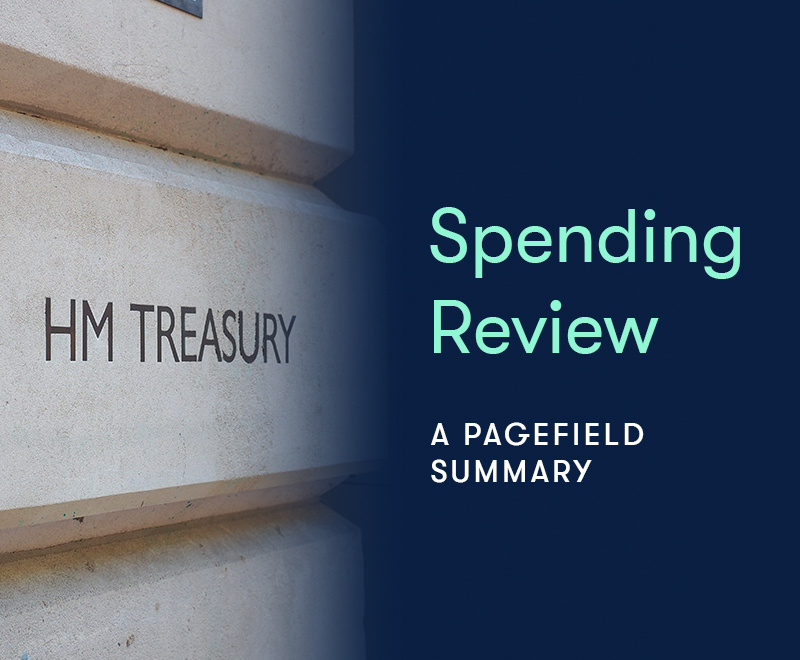Well I don’t think anyone saw that coming. As Big Ben struck 10pm last night, David Dimbleby read out the results of an exit poll that sent shockwaves through the entire country and started a chain of events that many will still be struggling to come to terms with this morning. Surely the Lib Dems couldn’t seriously be left with just 10 seats? How on Earth were the Tories going to get to 316? Yes, we knew about Scotland and expected the SNP surge (but never could we have envisaged swings of more than 30 per cent!), but fewer than 240 seats and 31 per cent of the vote for Labour? After much initial scepticism of the poll, the early seats in Sunderland showed considerable UKIP gains into the Labour vote in England, Scottish Labour began to melt in front of our eyes, the Tories held Swindon and slowly but surely it dawned that a dramatic – and catastrophic for many – evening was on the cards. As the pieces remain in flux and the country stands slack-jawed, here are five things that we can immediately take away from a truly remarkable evening.
The Traditional Result
In amongst this morning’s soul searching for Labour, Tony Blair and his controversial legacy is already unsurprisingly being used to make points on both sides. Increasingly embarrassing Uncle Ken Livingstone has been quick to lay the blame for defeat at the feet of New Labour, an approach which has been virtually taboo since 2010. Ken’s rationale seems to be that Labour weren’t left-wing enough, but in reality the party were gunning for a voting constituency which just doesn’t seem to exist anymore.
Blair’s decision to eschew old Labour maxims in the run-up to the historic victory of 1997 pivoted Labour away from this apparently imagined group – working class, left-wing and socialist in the old-school sense – and towards the centre ground, and Labour is now rapidly re-learning the lessons which led them there. Blair will surely take no pleasure in this vindication, but his warning that this election risked becoming one in which a ‘traditional left-wing party competes with a traditional right wing party, with the traditional result’ has to be one of the campaign’s most prescient.
The English Problem
The SNP surge has been on the cards for six months and Labour strategists should have been expecting the mauling they were duly delivered. What is remarkable, however, in the face of this is how badly Labour then performed in their English target marginals. London aside, Labour’s performance in England was just awful. Their inability to take Warwickshire North early in the evening, a seat with only a 54 vote lead and the sitting MP not standing was a worrying sign and was magnified by other substantially increased Tory majorities in Thurrock, Hendon and Sherwood – all constituencies that Labour had thought themselves nailed on to win. With Scottish Labour now nearly extinct in Westminster, Labour must ask themselves some serious questions about how they can win those English seats which are crucial to any hope of a future majority.
However, it’s not just Labour that is having to contemplate its English problem today. UKIP have been unable to deliver any meaningful presence in Westminster despite its evident groundswell of support in the land of St George and the Lib Dems (more on them below) have been absolutely savaged in their south-west English heartlands. A failure to deliver English votes will ultimately lead to the likely fall of a remarkable three party leaders in one day and a myriad of household names including Balls, Cable and Laws searching for a new job.
Referendum 2.0
For a country that had held only nine referendums in 27 years before the coalition Government, we seem to have recently developed quite a taste for them and we shouldn’t expect this to change over the next Parliament. Despite their protestations to the contrary, the gigantic, unprecedented victory of the SNP in Scotland has all but guaranteed a similar result in the Holyrood elections next year which will likely lay the platform for another Independence Referendum in the near future – and the UK should be braced for a very different result this time. Equally, the Tories securing a majority all but guarantees an EU Referendum in 2017 that will dominate UK politics for the next two years. If the Independence Referendum taught us anything, however, it is that the parties will be doing everything they can to anticipate the unforeseen consequences of the Scottish vote that has led to the destruction of the Westminster consensus north of the border.
A Case For Reform?
With UKIP winning only one seat in Westminster in exchange for 12 per cent of the popular vote (that’s 3m votes per seat) standing in stark contrast to the SNP’s staggering 56 seats on 5 per cent, we look almost certainly set for a lengthy public debate on the electoral system once more. However, we should remember that for years the Lib Dems complained of similar treatment under the first-past-the-post (FPTP) system, but the argument for ‘fairness’ of votes was never compelling enough. It was ultimately the fact that FPTP had failed to deliver a majority government in 2010 that made the case for a referendum on AV, but as this mist clears this morning and the electorate has delivered an, albeit weak, one-party government, changing the system may be harder than many UKIP voters will hope. We should expect them to be significantly more vocal on the issue than the Lib Dems have been, however.
The second case for reform will almost certainly be the primary issue on the Tories legislative agenda, and thus much more likely to be delivered; boundary reform. Many were suggesting as little as 15 hours ago (what a long time ago that now seems) that the Tories had committed political hara-kiri in not delivering boundary reform but, in spite of this, the Tories actually increased their vote share and their seat numbers – the first time this has happened for a governing party since 1955. On the back of such success, expect reform, expect it quickly and expect an incredible headache for Labour as a result.
The future’s bleak: the future’s not Orange
It was really, really ugly for the Lib Dems. Not only have they lost all of their senior ministers and some of their most treasured seats, they’ve lost more than £160,000 in deposits. The question now of course is, what next? Clegg has already stood down as leader – but who will replace him? The party has been devastated by its time in Government and has been stripped of almost the entirety of its intellectual core. What happens next depends much on who wins the leadership contest and it looks to be a stark choice between Tim Farron and Norman Lamb – but the outcome of that pales into insignificance when faced with the greater unknown of whether the Lib Dems now even have the capacity or local operation on which to build a national platform and whether they would ever risk going into coalition again. For all the talk of multi-party politics being established by the Lib Dem role in government, the ‘cruel punishment’ that has been doled out is proof that two-and-a-half party politics is alive and well.
Picture credit: EPA



